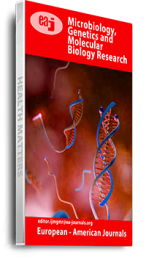The study was carried out to determine the microbial and proximate composition ofpopular imported infant milk formulas in retail market at Ado-Ekiti. A total of six popularcommercial infant milkpoducts were purchased from the main market in Ado-Ekiti, Nigeria, and evaluated for microbial composition: total bacterial, coliform and fungal counts. Their proximate components were also determined. The total bacterial count ranged from 0.6×103 to 0.9×104 CFU/ml, with mean value of 3.4×103CFU/g, the total coliform ranged from 0.2×103 to 0.6×104 CFU/ml, with the mean value of 1.7 x 103CFU/g and the total fungal countranged from 0.2×103 to 0.5×104 CFU/ml, with the mean value of 0.9 x103CFU/g. Enteric bacteria and mycotoxigenic fungi were isolated from the formulas. Having subjected all the bacteria isolates to antibiotic susceptibility test, they all showed multiple antibiotic resistanceindex. The fat content ranged from 10mg/100g to 27.7mg/100g with mean value of 17.8mg/100mg; protein content, 1.5mg/100mg with mean value of 10.68mg/100mg and carbohydrate content ranged from 7.2mg/100mg with the mean value of 50.76 mg/100g. However ash, moisture and fibre contents of all the samples were insignificant.This study depicted the possibility of microbial contamination in infant milk formula supposedly sterile.
Keywords: Antibiotic resistance, Infant milk formula, Microbial count, Proximate

